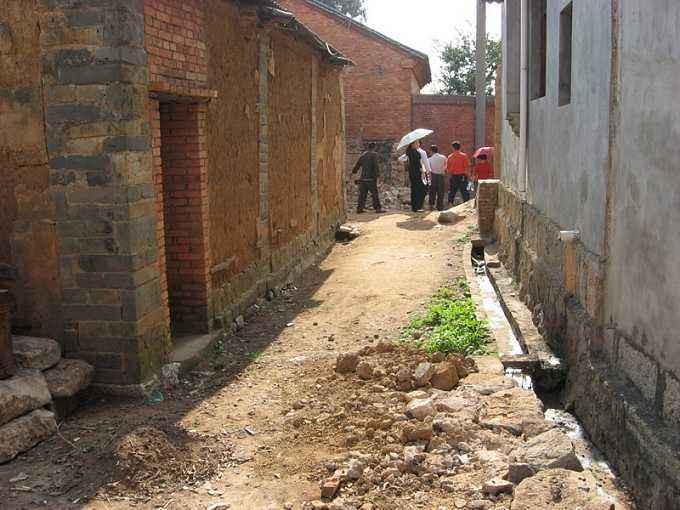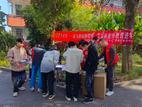Rev. Zhou Hongwei is a native of Lin'an District, Hangzhou, Zhejiang Province. He became a Christian in the countryside, received theological training in Zhejiang Theological Seminary, and returned to pastor a town church in his hometown. Since 2001, he has led the Sunday service in surrounding rural churches almost every week. He shared the past 40 years of development in the church of Lin'an District.
Currently, there are around 15,000 Christians in Lin'an District with a total population of about 530,000. The district has five pastors, fifteen elders, ten full-time church workers, and approximately 170 volunteers who serve in five or six churches and over 60 gatherings.
Rev. Zhou has been to 30 local churches and gatherings whose congregational numbers range from 30 or 40 to 100 or 200.
The gospel was introduced into Lin'an during the Qing Guang'xu years. There were just a few Christians in the mountainous area. In the 18th century, the western Christian China Inland Mission preached here and founded a church in 1885. A Presbyterian church was set up in 1896. Later eight churches were established.
Before the establishment of the PRC, the number of the congregation reached 300. Due to political reasons, believers were scattered and just a small portion of them insisted on holding services at their homes. The reform and opening up that started in 1978 brought changes to the stressful political environment. They used to gather secretly, but they can attend services in the church.
An upsurge in church construction occurred. As of 2000, there were 80 registered church and gatherings. In the 1980s and 1990s, the religious premises were mainly residential houses with a relatively small space. In around 2000, these places of worship that became too crowded were reconstructed. A golden period of church construction came: more than 30 reinforced concrete churches and over ten religious activity sites were constructed.
New or better hardware devices were added, like microphones, sound equipment, and instruments including organs, keyboards, and pianos. One-third of the churches and gatherings have been equipped with projectors and computers.
Sometime after 1978, China started to focus on urbanization and rural population shifts. As a result, the rural church attendance decreases and the majority of the congregations are left-behind children and elderly people. Some churches are even left "empty".
It's a common status quo that the rural church across China is dispersed with few congregations and workers. Though Lin'an is a tourist county with good economic conditions, most of the local young people move to cities and towns.
Since the reform and opening up, the rapid economic growth has brought a positive influence to churches.
The churches in Lin'an have sound church administrative teams. Bands and choirs are founded in central churches and gatherings that holds various kinds of meetings and special services on holidays like Christmas, Good Friday, and Easter. Every parish conducts regular communication meetings and short-term training programs for volunteers as well as retreats.
Meanwhile, young workers are sent to advance in training programs and theological seminaries.
The church in Lin'an is also involved in charitable events like donating for the 2008 Sichuan Earthquake, the 2010 Yusu Earthquake and droughts and providing financial assistance to sick believers and poor families. It gives goods to nursing homes, schools for the deaf and mute, and children's welfare homes.
- Translated by Karen Luo












